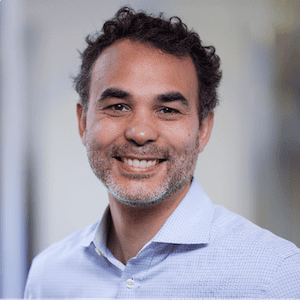-
Power, Individualism and Indulgence: How to Leverage Cultural Factors in Entrepreneurship Training
Cultural factors can influence just about every aspect of an entrepreneur’s journey. Using a cultural dimensions tool, the authors compared how cultural background influences entrepreneurs in the USA and the Philippines. After finding large differences across three dimensions of culture, they explored how these differences might affect entrepreneurs in the Philippines and how entrepreneurship training can be tailored accordingly.
- Categories
- Education
-
De-Mythifying Financial Education
Many organizations have discovered that it's difficult to bring comprehensive and sustainable financial capability to the BoP. Recognizing that financial education is complex and influenced by the clients' environment, MicroSave has developed a framework for those planning interventions, including four key lessons that should be at the forefront of any design.
- Categories
- Education
-
From Beneficiary to Customer: 40K Transitions from School-building Charity to Edtech Social Enterprise
It took five years for 40K to build its first school in India. Over that time, the organization learned a lot about the key barriers that were preventing quality education from proliferating in rural areas. Over the next two years, 40K transformed from a school-building charity to an edtech social enterprise. Clary Castrission, founder and CEO, explains why, and how the transition is progressing.
- Categories
- Education, Social Enterprise, Technology
-
Social Business Roundup: A $1 Smartphone, the Upshot of Disparity and the Quizzing of Presidents
If you manufacture a phone that comes with apps advertising to low-income consumers, can you sell it for as little as $1? The folks at SocialEco think so. Other items NextBillion's editors came across for this week's Roundup included a concentration on wealth concentration, an unhappy birthday for M-Pesa, plus a presidential Q that will hopefully result in an A.
- Categories
- Health Care, Technology
-
The Secondary School Abyss: Can Public Private Partnerships Help?
Demand for secondary schools outstrips supply in parts of Africa. PEAS, which builds and runs not-for-profit secondary schools in Uganda and Zambia, has decided to focus on working alongside an informal coalition of partners, including governments, to create a PPP school movement across sub-Saharan Africa.
- Categories
- Education
-
Mainstreaming Impact Investing: 12 Takeaways from ‘The Economist’ Event
On Feb. 15, 'The Economist' magazine hosted a discussion in New York on how impact investing can truly go mainstream. NextBillion was a media partner at the event, and we've compiled 12 memorable and sometimes unexpected insights from panelists throughout the day.
- Categories
- Investing, Social Enterprise
-
Client Outcomes Data in Microfinance: Few Have It But Everybody Needs It
Many recent studies have found that microfinance has no impact, or minimal positive impact, on clients’ lives. To find out why and to fix the problem, financial service providers need client outcomes data, but few FSPs collect it because they think it would be too expensive and time-consuming. Turns out, according to the SPTF Outcomes Working Group, it's not.
- Categories
- Uncategorized
-
How to Stop Wasting Food … and Feed the World
Productivity isn't the only variable in the effort to increase the world's food supply; one-third of all food gets lost or wasted. Science for Society Techno Services claims its solar conduction dryer increases the shelf life of perishable produce by six to 12 months, and the firm even buys processed food from farmers and takes their dehydrated produce to market.
- Categories
- Agriculture, Technology










